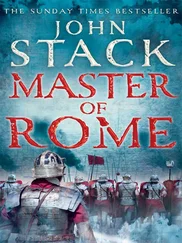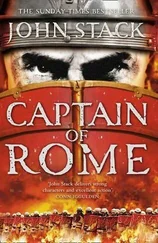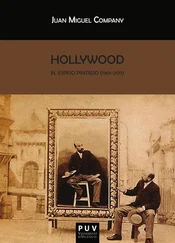‘Hold!’
The bellowed order split the air and the Carthaginians checked their attack. Scipio did not understand the shouted order in Punic but he realized its significance and he searched the crowd of blood-soaked warriors for their commander. The Carthaginians parted and a solid bull of a man strode forward, his bearded face matted with sweat. He was older than Scipio, by at least a dozen years, but he carried himself with the bearing of a commander. He stood directly opposite Scipio and looked him up and down, his face fixed in a crooked smile. He turned to his men and issued more orders in incomprehensible Punic. The men rushed forward and struck at the four praetorian guards, taking them by surprise and killing them where they stood. Scipio roared a curse at the Carthaginian commander and readied himself once more. The commander laughed at the defiance.
‘Put down your sword, Roman,’ the Carthaginian said in fluent Latin.
Scipio did not move, his expression hard. The Carthaginian commander sheathed his own sword and walked forward until he was within range of Scipio’s blade.
‘I do not wish to kill you, Roman, you wear the robes of a senator. Who are you?’
Scipio drew himself to his full height.
‘I am Gnaeus Cornelius Scipio, senior consul of the Roman Republic,’ he said, speaking in a tone that reflected his disgust at having to address the Carthaginian commander. In the pause that followed, Scipio studied the man before him, wondering what fate the Carthaginian had in store for him.
The Punic commander smiled, a smile that did not reach his eyes but rather emphasized the loathing that dwelt behind the gaze. For the first time that day, as Scipio gazed upon the hate-filled expression, he felt fear in his heart.
Atticus looked out over the aft-rail of the Aquila as the last traces of the volcanic smoke disappeared in the southern sky, the island of Stromboli now twenty miles behind in their wake as the galley sped northwards towards a darkening horizon. The drum beat of standard speed infused the air, but to Atticus the sound went unnoticed, its staccato rhythm blended into the myriad of familiar sounds that he had known half his life. Only unusual sounds alerted his concentration, and so he turned abruptly as he heard Duilius approach. He stiffened to attention in anticipation of an order, but Duilius waved his hand.
‘Stand easy, Captain,’ he said, his voice lowered so as not to be overheard.
Atticus turned once more to the aft-rail and resumed his vigil. Duilius leaned on the rail beside him. Minutes passed.
‘Do you think any will have escaped?’ the consul asked.
Atticus simply shook his head, too weary to answer.
‘You seem sure,’ Duilius said, glancing sideways at Atticus.
Atticus stood upright and faced the consul, Duilius mirroring his stance.
‘They never had a chance,’ Atticus said, Duilius noting an underlying anger in the captain’s voice, ‘condemned men from the first day they arrived in Fiumicino.’
Duilius was shocked by the finality of Atticus’s answer, and his own anger began to rise.
‘Why?’ he asked, an edge to his voice.
‘Because the Carthaginians outclass us in nearly every way and we don’t have the experience to beat them on their terms.’
‘So the Classis Romanus should never have been born,’ Duilius asked angrily, ‘is that it? We should abandon Sicily and the legions?’
‘No,’ Atticus replied, the thought of futilely having to argue his point with another Roman making him angry, ‘but I do believe we need to stick to our strengths and challenge the Carthaginians to the only fight we know we can win.’
Duilius was about to rebuke the captain again, but something in his voice made him pause and he realized that what he had thought was defeatism was in fact frustration.
‘So what are our strengths?’ he asked, his gaze searching.
‘Our sailors can’t match the Carthaginian crews, but our legionaries far surpass the Carthaginians’ best fighters. We need to take the fight to the enemy decks.’
‘How?’ Duilius asked, realizing at that moment that he knew nothing of naval tactics.
Atticus outlined the sailing skills necessary and the time that would be needed to train the crews. He paused as he decided if he should reveal the whole truth, the gaping problem in the tactics he outlined, the legionaries’ inability to board successfully. He recalled the consul’s earlier honesty and decided to gamble with the truth.
Duilius absorbed the entire argument, for and against, before replying.
‘Why were the sailing crews not taught boarding manoeuvres at Fiumicino?’ he asked.
‘Because our orders were to train them in ramming techniques only, the one area the Carthaginians have complete superiority.’
‘By whose orders?’
‘Tuditanus’s,’ Atticus replied.
Scipio’s man , Duilius thought to himself.
‘Do the other galley captains agree with your judgement?’ the consul asked aloud.
‘The captains of the Ostia fleet are Roman. They follow orders without question,’ Atticus said, a hint of disdain in his voice. ‘It takes an outsider to see what they cannot.’
Duilius nodded. He had seen it many times himself in the Senate, from the first day he walked in as a novus homo , a new man. The senators from the older families were blinkered by tradition and age-old stability, bred from a young age to replace their fathers in the Curia. It was because Duilius was an outsider that he was able to see what they could not, that he had been able to use the system in a way they would never discover, and it was the reason he had risen so far so fast.
Duilius gazed intently at Atticus as his mind weighed the task ahead of him. He was not a military man. In fact, he had never been on board a galley before two days ago. Now, however, he was overall commander of the Classis Romanus and he realized in an instant that, if he was going to succeed, he would need the expertise of men like the captain before him, men whose qualities reflected his own.
‘Captain Perennis,’ he said suddenly, ‘I want you to draw up a full training schedule when we return to Fiumicino, one that encompasses both ramming and boarding.’
‘Yes, Consul,’ Atticus replied, his hand unconsciously gripping the aft-rail as frustration was replaced by anticipation.
‘But…’ Duilius continued ‘…you also need to solve the problem of the legionaries.’
Atticus nodded as he consciously brought the entire argument to the forefront of his mind once more so he could examine it anew.
Duilius studied Atticus’s expression and saw that his mind was already at work on the problem. He nodded to himself. The captain was indeed a man like himself, a man who became focused and driven when the odds were stacked against him. He turned once more to peer out over the aft-rail as the last of the day’s light fell below the western horizon, his thoughts returning to the day past and the weeks ahead.
CHAPTER THIRTEEN
Marcus read the parchment in silence as the legionary stood before him in the centurion’s tent, the dagger still in his hand.
‘This was hooked to the pommel of the knife,’ the soldier said, holding out his hand to reveal a signet ring.
Marcus took the ring and studied it. It was gold, with an ingrained symbol on its face. ‘ SPQR. ’ He turned it over slowly in his hand, his mind reeling from the news on the parchment, news that the Carthaginians had stuck to a tree outside the main gate during the night using a Roman dagger. It had been found by the legionary standing before him when the dawn light revealed its presence.
‘Who else knows of this parchment?’ Marcus asked abruptly.
Читать дальше
Конец ознакомительного отрывка
Купить книгу











